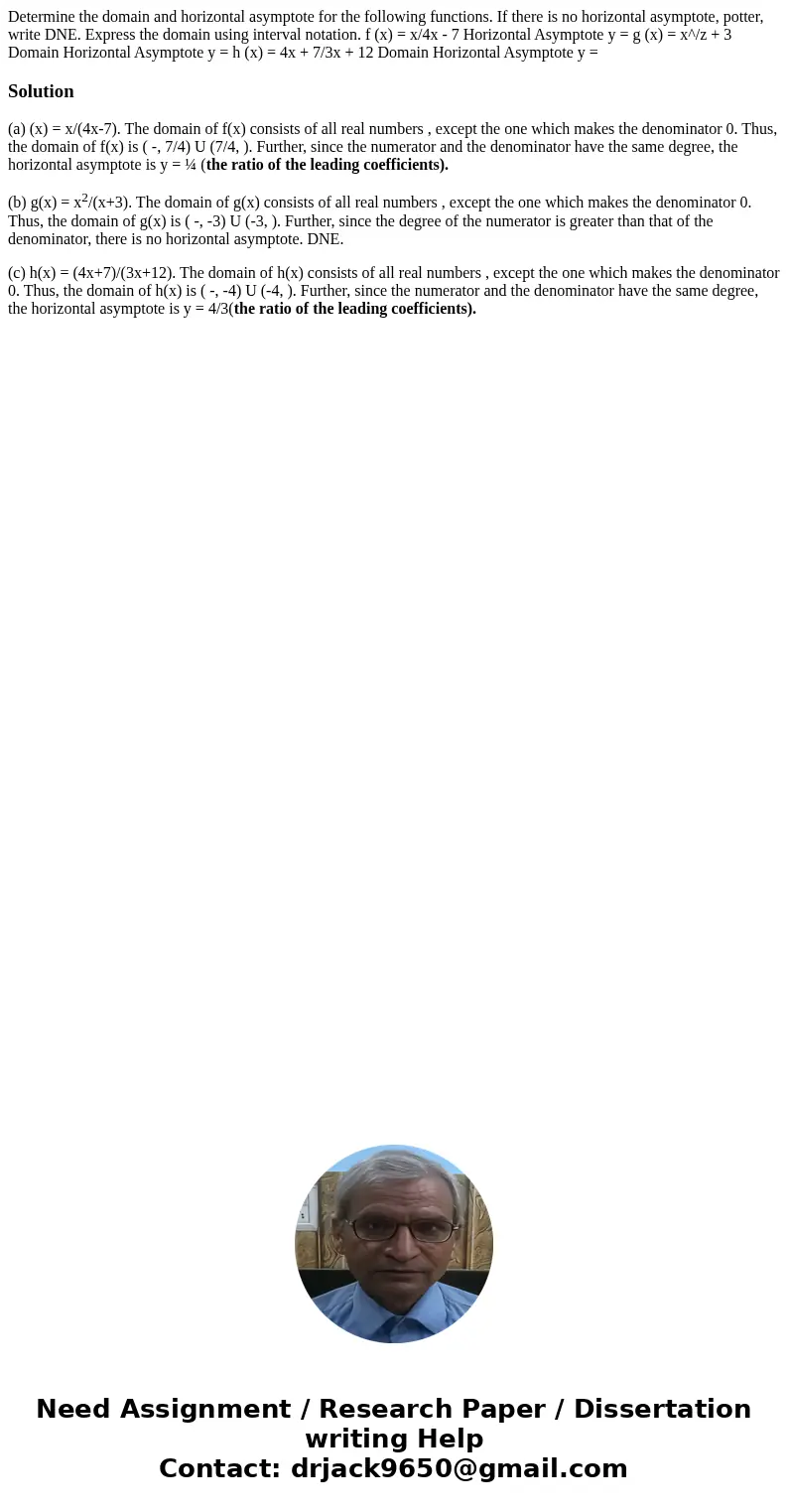Determine the domain and horizontal asymptote for the follow
Solution
(a) (x) = x/(4x-7). The domain of f(x) consists of all real numbers , except the one which makes the denominator 0. Thus, the domain of f(x) is ( -, 7/4) U (7/4, ). Further, since the numerator and the denominator have the same degree, the horizontal asymptote is y = ¼ (the ratio of the leading coefficients).
(b) g(x) = x2/(x+3). The domain of g(x) consists of all real numbers , except the one which makes the denominator 0. Thus, the domain of g(x) is ( -, -3) U (-3, ). Further, since the degree of the numerator is greater than that of the denominator, there is no horizontal asymptote. DNE.
(c) h(x) = (4x+7)/(3x+12). The domain of h(x) consists of all real numbers , except the one which makes the denominator 0. Thus, the domain of h(x) is ( -, -4) U (-4, ). Further, since the numerator and the denominator have the same degree, the horizontal asymptote is y = 4/3(the ratio of the leading coefficients).

 Homework Sourse
Homework Sourse